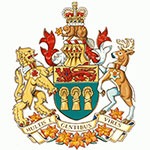SMALL CLAIMS COURT
Provincial Court | SaskatchewanEffective April 1, 2024, the claims limit at Provincial Court Small Claims Court
increased from $30,000 to $50,000.
Courts of Saskatchewan
Small Claims Court
Provincial Court
Small Claims Court is meant to be an easier and less expensive way to resolve disputes. People can approach the Court knowing that the staff can help prepare the necessary forms and that the judge is skilled in settling disputes. While lawyers can handle Small Claims cases, most people choose to represent themselves. The emphasis when issuing claims is on facts rather than procedural or legal technicalities.
Claims cannot exceed $50,000 in value. Disputes involving title to land, slander, libel, bankruptcy, false imprisonment or malicious prosecution must be handled at King’s Bench.
This website contains all the required forms and documents. There are also links to other helpful sources of information.

Should I Sue?
Note: This material is for informational purposes only. It is not to be construed as legal advice. It is intended to give a general overview of matters involving civil claims in the Provincial Court (Civil Division). Should you require advice specific to your situation, please consult a lawyer.
Pursuing a court action requires time and effort on your part as well as some expense. There is also no guarantee of collecting the money from any judgment you might obtain. If the defendant (the person you are suing) has no assets, no job and no prospects of either, you should think seriously about whether to sue or not.
If you win, the court provides you with a judgment, but that is not necessarily the end of the process. Sometimes, getting a judgment is just the beginning because if the defendant does not voluntarily pay, you must then take steps to enforce the judgment.
Enforcing your judgment is not the responsibility of the courts. There are some court procedures you can use to collect the money – like tools to do a job – but it is up to you to use them. Once a judgment is obtained, any enforcement steps must be taken through the Court of King’s Bench – which is not the court that issued your claim. The Provincial Court where you obtained the judgment has nothing further to do with your case.
It’s important to note as well that enforcement remedies are at your expense. Although some of the fees are added to the amount the defendant owes you, you have to pay those fees, to begin with.
Affidavit of Service
The plaintiff is responsible for notifying (“serving”) each defendant of the claim. This ensures that the defendant has the opportunity to see the claim in a timely fashion. A claim may be served by Personal Service or by Registered Mail. Details about the methods of service and time restrictions are described in the document called Starting Your Action.
Once you have served the defendant, you must be able to provide the Court with proof that this service took place. This is done either by you testifying orally in court or by filing an Affidavit of Service through the Provincial Court clerk’s office.
To prepare the Affidavit of Service, select the appropriate form, fill in the necessary information, sign it in front of a Commissioner for Oaths or a lawyer, and file it at the court office. If you need help completing the Affidavit of Service, do NOT sign it, but bring the documents to the Provincial Court and the clerk, who is also a Commissioner for Oaths, will help you.
SMALL CLAIMS COURT RESOURCES
CONTACT THE COURTS
Regina Small Claims
1815 Smith Street
Regina, SK, S4P 2N5
Ph: 306-787-5375
Saskatoon Small Claims
220 19th Street East
Saskatoon, SK, S7K 0A2
Ph: 306-933-7053
For other locations, find the
Court Office nearest you.
Court staff can provide assistance with the process but are not able to provide legal advice.
HOW TO COMPLETE A CLAIM
You can find sample claim forms and more information on how to complete a claim here:
More Information
- VIDEO – Civil Claims: What to do in Court
(From The Alberta Branch of the Canadian Bar Association). - Small Claims Information
from The Public Legal Education Association of Saskatchewan Inc. - The Small Claims Act and Regulations provide authority over Small Claims matters.
- Other sources of information and legal assistance are available in the community.
ADJUST FONT SIZE
